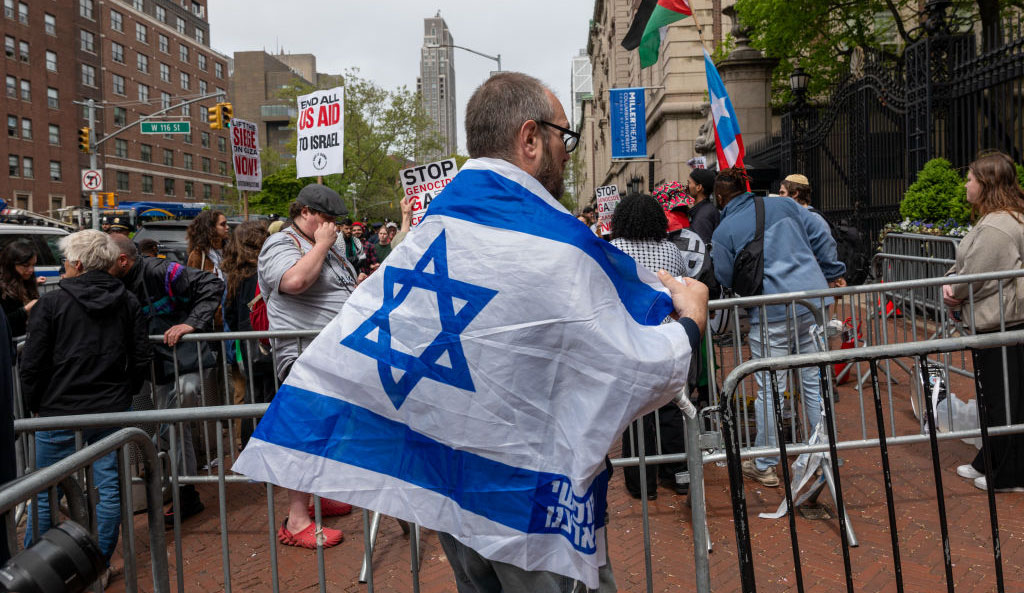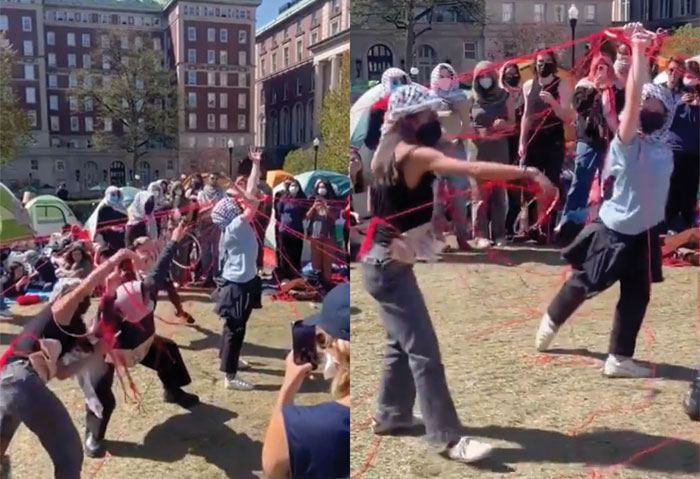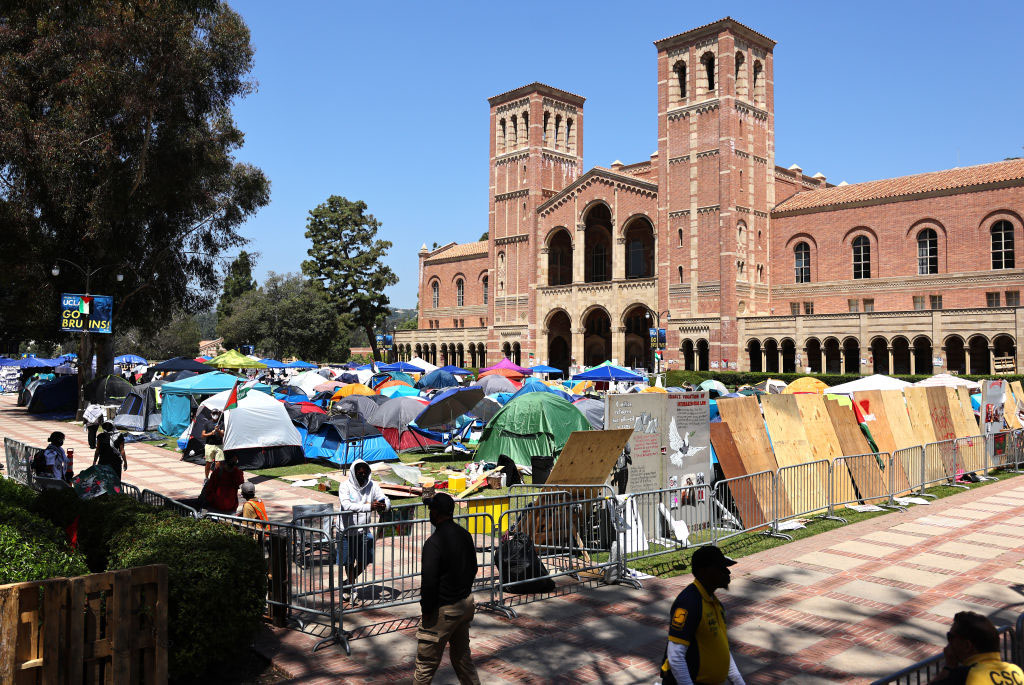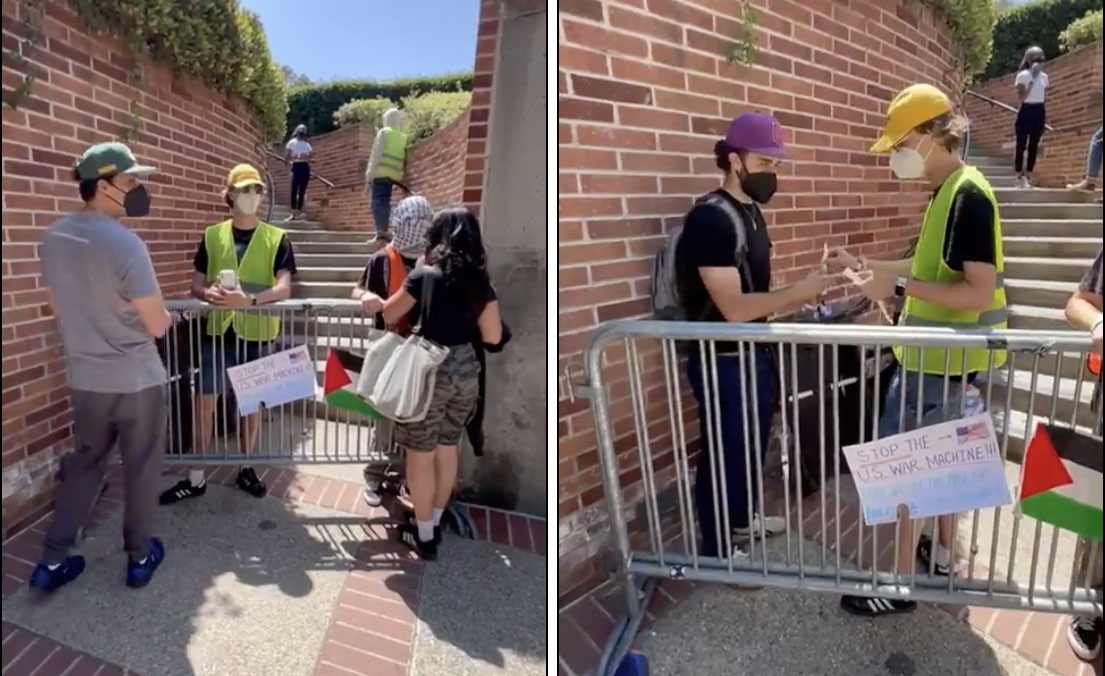I was a guest on Warren Olney’s “Which Way, L.A.?” on KCRW-FM this past Monday afternoon when the host stumped me. He was speaking with me about the response of the Los Angeles Jewish community to the Gaza war.
“Is the reaction any different than in the last two Gaza operations?” Olney asked.
It was, “Why is this night different from all other nights?” but without a song for an answer.
I told Olney this conflict seems more intense and more personal.
Part of the reason is that more Americans come from, visit or have relatives in Israel and Palestine than ever before. When things are relatively quiet in the Middle East, we all get along swimmingly. But war there now seems to send us to the barricades here.
The other reason, I explained, was technology. Social media has brought instant images from Gaza and Israel to our cell phones via Twitter and Instagram. The 24-hour news cycle has filled the airwaves with anguished victims on both sides.
The two opponents have media sophistication that rivals HuffPo. Hamas sends out heavily produced videos of varying veracity detailing its glorious achievements, and the Israel Defense Forces (IDF) posts Paul Greengrass-quality clips of military operations, which pop up right beside the latest Iggy Azalea downloads.
Surreal doesn’t begin to describe standing on a tennis court in Venice and watching a video of Israeli combat troops 10,000 miles away taking out Hamas terrorists emerging from a tunnel — the whole operation going down about when my set began.
But after my KCRW interview was over, it occurred to me: I was wrong. What makes this war more personal has nothing to do with technology.
It’s about dead children — theirs and ours.
It began with the images of the three murdered Israeli teens, then the lynched Palestinian teen — and worsened from there.
On the Palestinian side, the images are tragic and relentless. Of the more than 600 Palestinian dead thus far, the United Nations estimates that some 20 percent are children.
If this war were just about killing Hamas terrorists, most of the world, including the Arab world, would approve. But in the densely populated Gaza Strip, where half the population is under 18, child casualties are inevitable — no matter how many precautions Israel takes. And Operation Protective Edge, which at the start looked, to most fair-minded viewers, truly protective, has become something else.
There is a difference between Hamas’ intentional targeting of Israeli children and Israel’s inevitable striking of the Palestinian children Hamas leaves in harm’s way — but as the body counts climb and the images pour forth from Gaza, that moral distinction is increasingly lost on the world.
Americans, wrote Benjamin Wallace-Wells at NYMag.com, now see “Palestinians a little bit less as demagogues and terrorists and a little bit more as they see themselves, as ordinary people living in often impossible circumstances.”
But what some of those who are justifiably heartbroken over the dead Palestinian children fail to see is that for the Israelis, this is also about their children.
There are the children of southern Israel, who spend much of their lives running for shelter at the sounds of air raid sirens. That they aren’t killed has nothing to do with Hamas’ intentions.
Then there are those miles of tunnels. Those Hamas terrorists who I watched on video emerge from the tunnel that ran from Gaza into Israel did so intending to storm a nearby kibbutz and slaughter its men, women and children.
The cold, cruel choice Israelis and their supporters feel they must make is this: Should we kill as few of their children as possible now, or wait until they kill as many of our children as they can later?
Putting these sobering thoughts aside, Israelis are just as heartbroken at having to send their children — the ones who happen to be soldiers — back into Gaza to confront an entrenched and suicidal enemy.
This reality became painfully apparent when a colleague from abroad called me early Sunday morning with the information that among the 13 IDF soldiers killed the previous evening in Gaza was Max Steinberg, a 24-year-old from Woodland Hills.
The news brought the war home in a way I never experienced. Angelenos have died in terror attacks in Israel. But Steinberg was the first Los Angeles Jew to die in combat in Israel since 1948.
Soon after they received the news, the family allowed our reporter Jared Sichel and Jewish Journal President David Suissa to meet them in their house of mourning. As you read Jared’s account of Evie and Stuart Steinberg’s unfathomable loss, you will understand they are not talking about their soldier, but about their child.
Our concern over our children fuels the ferocious, intense debate over morality and tactics. It spills over into the heightened anger of the rallies and protests, the relentless online arguments. It’s what makes a distant war visceral.
I only pray that between the time this round of violence ends and the next round of violence begins, Israelis and Palestinians, Jews and Arabs, find a better way to settle their differences than over their children’s dead bodies.























 More news and opinions than at a Shabbat dinner, right in your inbox.
More news and opinions than at a Shabbat dinner, right in your inbox.